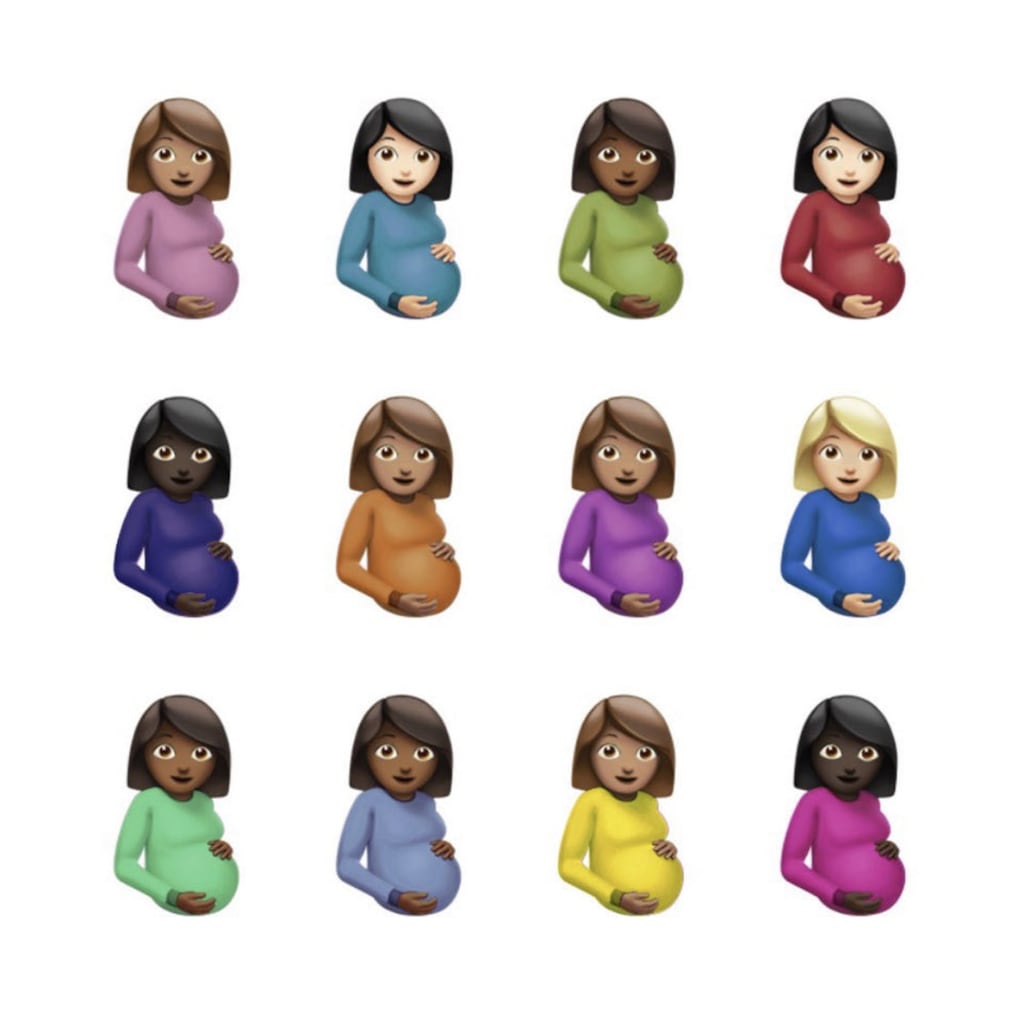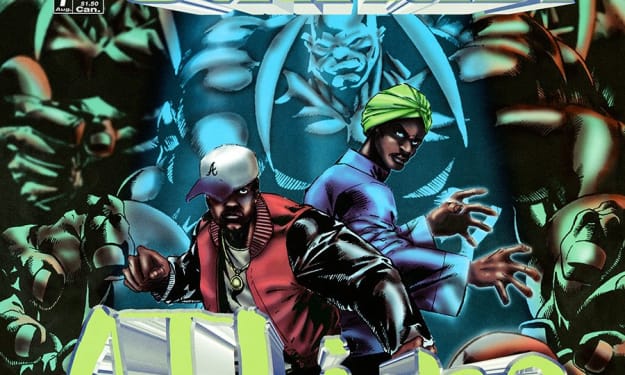Certified Lover Boy — Album Review
Drake does it again

In the wake of the feud between two of the rap game’s biggest stars, Drake and Kanye have both released their long awaited albums. Two of the world’s biggest stars have dropped consecutively and will control airwaves for months to come. For now, let’s take a look into the long awaited Certified Lover Boy.
The first think to note is the album cover. The absurdity of the cover alone is noteworthy, however it has been theorized that there is a specific meaning behind it. Note the pregnant woman emojis, this album is releasing 9 months after it original release date and just so happens to fall on Labor Day weekend — coincidence? Perhaps not. From his Instagram story, Drake describes this album as, “A combination of toxic masculinity and acceptance of truth which is inevitably heartbreaking…”
Next is looking at the sheer amount of features on the album. It includes Lil Baby, Lil Durk, Giveon, Jay-Z, Travis Scott, Future, Young Thug, 21 Savage, Lil Wayne, Rick Ross, and Kid Cudi. If you weren’t sure about the impact this album will have, look no further than the features. Some of the greatest in the game ensure this to be a top project for this year and many more to come.
The album opens with “Champagne Poetry”, a classic intro to the album that will remind everyone that he is on top of the game. This is a trademark aspect of every Drake album, so I expected nothing less than greatness from the first track. Though a little long-winded, Drake brings the flow and mastery of his verses in an effortless way. Along the song, it feels like we’re building up to something, like an explosion of feeling or a section of voracious bars but it doesn’t come in this song. I think this signifies that he is singularly in control, and that he’ll do numbers regardless of when or what he drops. In the song, Drake addresses his son, rumors he was waiting on other artists to drop, and the pressure of being great. The song itself feels like an intimate conversation over a glass of champagne and thus, poetic in its form and meaning.
Drake get decidedly disrespectful on the next track, “Papi’s Home”, an ode to all his “sons”. He “apologizes” and claims that he is home now, so everything is okay. With one verse, he goes all out on his ops with a smooth chorus and melody provided by Montell Jordan. This song seems to be a homage to all the young rappers in the game, a reminder that Drake is still on top.
The next track, “Girls Want Girls”, is interesting because this is different flow with Drake. His first verse is very similar to Lil Baby’s flow (who is featured on the song), so it seems the sonic focus is on the Baby verse. The subject matter can be a bit touchy, especially in contemporary society. It focuses on bisexuality and lesbians and how they interact with the patriarchal society around them. You have to tread lightly when approaching this subject because it can step into biphobia territory quickly. Drake is enamored with a lesbian woman and tries to justify this by saying they both go the same way. A weird way to put it, regardless, the song itself is slower and more intimate.
“In The Bible” is a more serious approach the lustful lifestyle. Religion is a centric focus here and how that lifestyle is sacrilegious by nature. Love seems to be futile as a result. The song features Durk, who seems more interested in humorously promoting his girl (“Drake song doing a billion streams for sure, I’m just promotin’ her shit”) than the thought of religion as a focus in a relationship. Giveon provides a beautiful sentiment, as always. Giveon claims that his “good girl” he is with, is tainted every time he is there. As a result, it is a source of shame to be with him and she shouldn’t be with him leaving with the question of authenticity in the sexual advance.
The next song is an introspective look at the totality of success. The view from the top is one of the loneliest, and feature Jay-Z knows this very well. The thing to take away from this song is that Drake feels the pressure to remain on top for the foreseeable future. Jay-Z adds that despite all the gangster talk, he still owns the game and everyone else should just appreciate him for that. The most notable line is, “People never care ’til it’s R.I.P.”
The first thing I notice with the next song, “Fair Trade”, is the subtle background vocals by Charlotte Day Wilson (also from Toronto). Though not directly mentioned as a feature, the intro is from one of her songs called “Mountains”. The song itself is about losing friends and substituting them for peace, what Drake deems as a fair trade. Since he is at the top, it seems like he no longer as the need for the connection as he is the connection other artist are looking for. A veteran of the rap game now, peace is starting to become more enviable. Travis Scott adds his classic rockstar personality to the track and delivers a track that is sure to quench the thirst of those waiting for Utopia.
The next song in both odd and hilarious with the opening sample from the 90’s hit, “I’m Too Sexy”. This song features Future, who adds his classic trap element and delivers the chorus claiming he is too sexy for multiple aspects of the rap game. You could make the case that the artists on this track are “pretty boys” and as such are beyond the mundane aspects of life. Young Thug delivers his classic baby voice style, making this one of the more addicting songs on the album.
From here, I will only cover a portion of the remaining songs to keep this a digestible piece.
Next is “N 2 Deep”. This song has two different parts. Additionally, this song has uncredited background vocals from The Weeknd (which confirmed my suspicion that he would feature in this album, thereby quashing their beef). The first part travels the conversation of Drake with a lover he is interested in, outside the club. He is speaking soberly and comprehensively, he means what he says in this section. There seems to be a disconnect between him and whoever he is talking to because she still calls him Drake even though they are on a first name basis. The second part of the song is more party like with a hard bass line and Future making another appearance. There is an “inside the club” element to this part. One can assume he closed the deal in this section as well: “Baby, that pussy was so worth the wait/I wasn’t in love with none of them anyway”.
“No Friends In The Industry” is the next notable track. This song speaks on the the betrayal of the music industry around Drake. This is most noticeable with his beef with Kanye. People are so quick so turn their royalties that it’ll give you whiplash. Notice that the people speaking on Drake for the past two weeks are quiet today, some even praising him. This song is cutthroat in its approach, especially in the second verse. It is an eery, quieter voice that speaks with more vice and anger. Drake refuses to accept disrespect here. You will for sure bob your head to this song.
“Knife Talk” is just as cutthroat as the song before it and features 21 Savage. 21 delivers a vicious bar on real life gangsta shit in his first verse backed by the less grimy Drake. This could serve as a symbolic nod to how Drake has steppers do his dirty work for him and they are really about that life. This song was produced by Metro Boomin’ and just goes to show the chemistry that Drake and 21 have with the producer.
“Fountains” has a very African feel to it. Drake has paid homage to Jamaican roots before, but in this song we take a look in the direction of Nigeria. With up-and-coming artist Tems featuring, this song feels very Afro-Caribbean by nature. The drum beat line in the background, along with the island-reminiscent string instrument and the funky use of the piano create for a paradisical experience. This style is very similar to the music captured for If You’re Reading This, It’s Too Late era.
“You Only Live Twice” is a classic Drake and Rozay combo track. Rick Ross and Drake has never missed on a track. With the addition of Drake’s mentor Lil Wayne, this song is much more reminiscent of 2010’s Drake. The song itself is a sequel to “The Motto” which was YOLO (you only live once). That seems like a lifetime ago so it’s fitting that we get a sequel a lifetime down the road. It is also worth noting that Lil Wayne is still capable of dropping the hottest bars after his prime. In this song and with Tyler, The Creator in Call Me If You Get Lost, Wayne provided essential features for the next generation.
Traditionally, the outro is where Drake tends to get more sentimental and often shows how grateful he is, usually at length. “The Remorse” is no different. This songs pays homage to his day ones, those that have always been there for him, namely 40, Noel, and Niko. Each are instrumental in his success and to this day reap the benefits of Drake’s success. His story serves as the ultimate success story, one that we can look back fondly at.
From young actor on Degrassi to singing rapper that goes on to dominate through three decades, Drake continues to shine in Certified Lover Boy.
About the Creator
Josh Herring
Emerging writer and published poet | Owner of Modern Music Analysis music publication







Comments
There are no comments for this story
Be the first to respond and start the conversation.